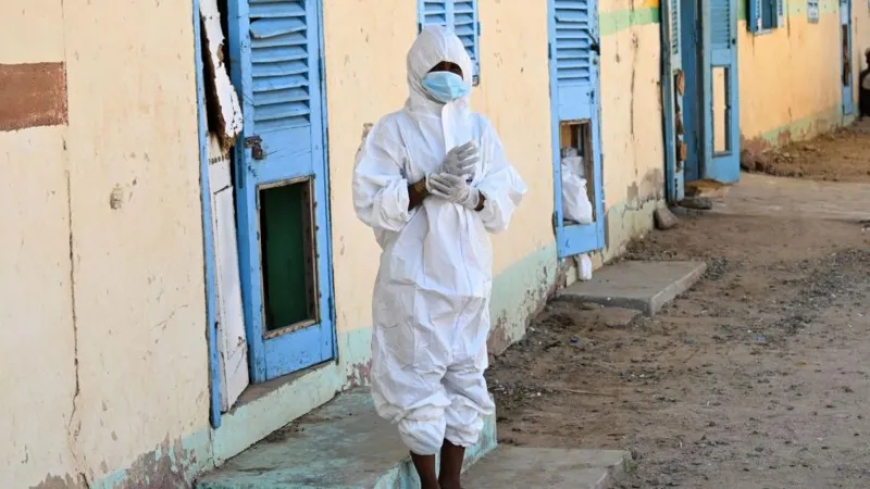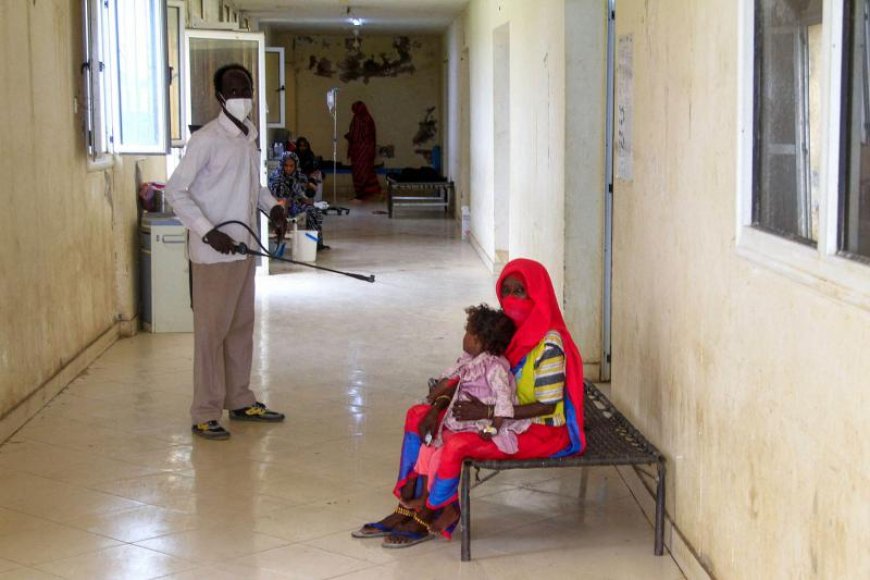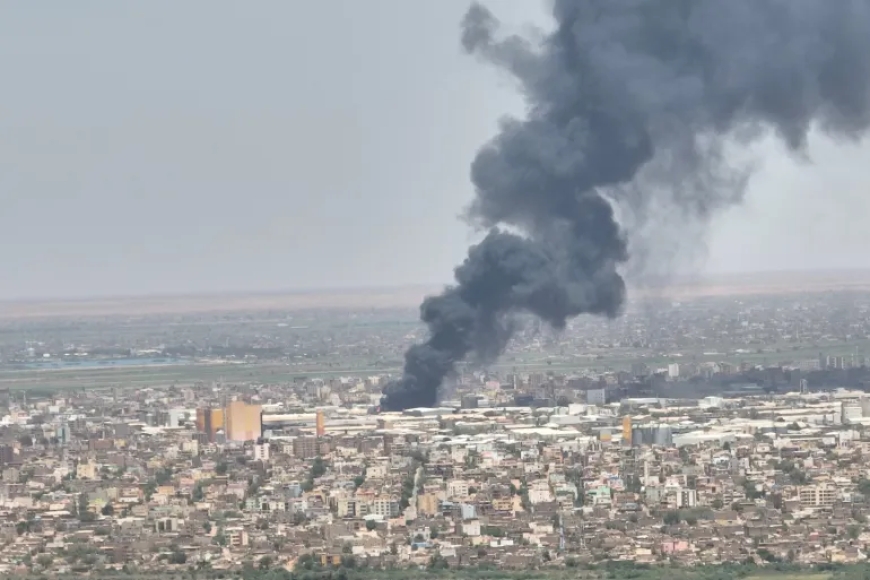Cholera Epidemic Devastates Khartoum Amid Port Sudan Authority’s Health Sector Neglect
The outbreak is spreading rapidly, overwhelming already strained healthcare facilities, many of which have been damaged or destroyed by recent airstrikes carried out by the Sudanese military during the ongoing civil conflict.

A severe cholera outbreak has ravaged multiple regions of Sudan, with the capital city Khartoum, particularly Omdurman, experiencing an alarming surge in cases.
The outbreak is spreading rapidly, overwhelming already strained healthcare facilities, many of which have been damaged or destroyed by recent airstrikes carried out by the Sudanese military during the ongoing civil conflict.
Growing infection rates amidst collapsing healthcare
The Sudanese Ministry of Health reports weekly cholera infections ranging between 600 and 700, with approximately 800 patients currently receiving treatment in Khartoum’s medical facilities. However, the official death toll remains undisclosed, with medical professionals and observers estimating the real numbers to be significantly higher.

A healthcare worker in a hospital in Sudan. /ARAB WEEKLY
The Port Sudan authority’s near-total neglect of the healthcare system has exacerbated the crisis. Since the outbreak of civil war in April 2023, resources have been diverted primarily to military efforts and allied Islamist militias rather than public health infrastructure, turning Sudan into a fertile ground for cholera and other infectious diseases.
Dire Situation in Khartoum’s Hospitals
Following the Port Sudan authority’s takeover of Khartoum after the withdrawal of the Rapid Support Forces, cholera cases have surged uncontrollably. The leadership has focused on military alliances and consolidating power, largely ignoring the critical health needs of civilians.
Healthcare volunteers at Al-Nau Hospital’s cholera isolation centre in Omdurman describe a catastrophic situation: patients far exceed the hospital’s capacity, with many forced to lie outside in scorching temperatures above 40°C. Deaths have reportedly reached as many as 20 per day over recent days, highlighting the dire need for urgent medical intervention.
Chemical Weapons and Disease Outbreaks: A Possible Link?
Unusual symptoms among cholera patients, such as severe diarrhoea coupled with signs of poisoning, have raised suspicions that chemical weapons might be aggravating the epidemic. The disease’s rapid spread, alongside outbreaks of dengue fever, has led experts to suspect that chemical contamination could be fueling the health crisis.
These fears were intensified by the US Department of State’s announcement on May 22, confirming that Sudanese forces used chemical weapons—including chlorine gas—in 2024, violating international law. This revelation supports concerns that chemical agents deployed during the conflict may be contaminating water sources and worsening the public health emergency.
Humanitarian collapse and medical neglect
Hospitals lack essential equipment, medications, and trained personnel to manage the swelling patient numbers. Family members are often forced to administer intravenous fluids themselves, and many have resorted to setting up tents outside hospitals to care for their ailing loved ones.
The crisis worsened due to power outages and the closure of clean water stations, leaving residents reliant on contaminated sources like surface wells and the Nile River.
While official infection reports remain conservative, ground volunteers estimate up to 700 new cases daily. International aid organisations are working to mitigate the catastrophe: the World Health Organisation (WHO) recently delivered 15 tons of medical supplies to Khartoum’s Ministry of Health and Médecins Sans Frontières, sufficient to treat over 58,000 patients suffering from cholera, malaria, dengue fever, and malnutrition.
Lack of support from the Port Sudan authority
Despite the escalating crisis, the Port Sudan authority has provided no meaningful medical assistance to civilians, focusing exclusively on military objectives. This has left humanitarian groups and volunteers to fill the void, including offering free transport for deceased cholera victims in the absence of ambulances and funeral services. Tragically, some hospitals have had to leave corpses unattended outside their premises due to overwhelming death rates.
International aid efforts
The US State Department’s Bureau of African Affairs announced the dispatching of tens of tons of critical aid to Sudan, including medicine, food, and emergency supplies sufficient for nearly 3 million people. This intervention aims to partially compensate for the health system’s collapse under the Port Sudan authority’s neglect and to help curb the spread of infectious diseases amidst the humanitarian crisis.







